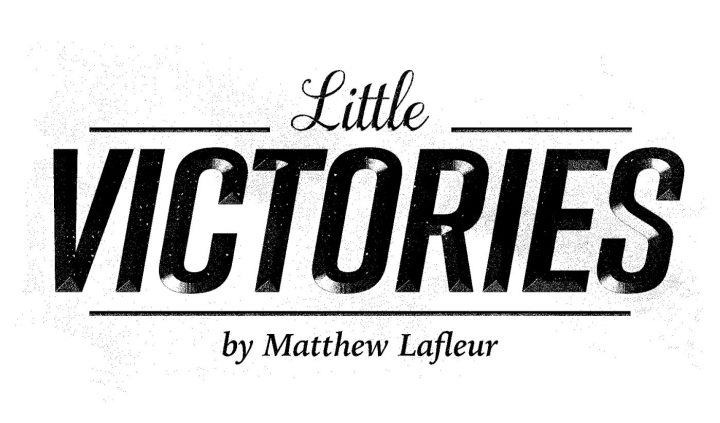I’m Both an FA Patient and a Cajun During Mardi Gras

(Photo by Kelly Schroeder)
 I find it easy to identify myself as a person with Friedreich’s ataxia (FA). In light of the significant effects that FA has on my life, I have no problem acknowledging myself as “Matt Lafleur, a guy with FA.” Full stop.
I find it easy to identify myself as a person with Friedreich’s ataxia (FA). In light of the significant effects that FA has on my life, I have no problem acknowledging myself as “Matt Lafleur, a guy with FA.” Full stop.
But as I get older, I’m learning that FA does not define me, though I feel consumed by its challenges.
I need to snap out of my melodramatic loop; the trap I fall into so often it’s embarrassing. When the holiday season is over and the cold stretches on and on. Note that “cold” is a relative term; I fret when the temperature is below 40 degrees. I salute those who braved this year’s polar vortex. Wreaths of purple, green, and gold have replaced the red and green lights; the scents of pine and fruit cake have disappeared, and the cinnamon smell of fresh king cakes now wafts on the air. It is Mardi Gras season in south Louisiana, Cajun Country.
I often forget that I’m Cajun, and see myself as defined by FA. That’s not a bad thing. I find it incredibly rewarding to write about life with FA and to help facilitate a forum for people to exchange ideas and tips for living with this rare condition. The most remarkable boon is getting to meet others affected by FA from across the globe.
Discuss the latest research in the Friedreich’s Ataxia News forums!
Yet it takes only the sight of a shiny set of cheap plastic beads or the first satisfying bite into a piece of king cake — perhaps stuffed with pecan praline filling, but almost always encasing a plastic baby figurine — to remind me of my Cajun identity.
I guess you can take the boy out of Cajun Country, but you can’t take Cajun Country out of the boy.
Even though I avoid crowds at almost all costs as I wrote previously, I do make an exception, every few years, to attend a Mardi Gras parade.
At the parade grounds, my two separate identities clash. In addition to being Cajun, I am someone who is affected by FA. I feel awkward in my wheelchair amid the sea of other spectators. With some envy I notice the fluidity of their movements, how easy it is for them to change location and position, effortlessly moving over to get a new beverage of their choice as we wait for the parade to start.
Mardi Gras parades have many local marching bands and dance teams serving as in-between segments for the main attraction: the floats. The latter come in a variety of types, from colorful papier-mache monstrosities to lightly decorated flatbed trailers. The crowds enjoy the objects tossed from them; plastic beads, metallic doubloons, stuffed animals, plastic cups (a hot commodity), and miscellaneous trinkets. Though these baubles are of low value, when thrown from a Mardi Gras float, we spectators scramble to collect them.
Here is another situation that’s awkward for me. Unless it’s lobbed squarely on my lap, I’ll likely miss whatever’s thrown near me, and I can’t quickly pick up nearby objects on the ground.
So even among the large crowds gathered, I manage to find a way to feel alone.
But the story does not end there.
I am learning to focus less on my pouting and insecurities and recognize Mardi Gras for what it is to me: fun. It’s great that I can identify myself as a small part of a vast culture, with its unique traditions, cooking, music, and holidays. No matter how you celebrate Mardi Gras, Cajun culture decrees it should be enjoyable. Full stop.
I’m not entirely comfortable in my shoes or dual identity, yet, but I’m working on it. Maybe it’s OK to see this holiday as both as a grim parade and a Mardi Gras Mambo.
I’m learning that it’s possible to identify as a FA patient and a Cajun. And I am proud to be both.
Have a happy Mardi Gras season, little victors.
***
Friedreich’s Ataxia News is strictly a news and information website about the disease. It does not provide medical advice, diagnosis or treatment. This content is not intended to be a substitute for professional medical advice, diagnosis, or treatment. Always seek the advice of your physician or another qualified health provider with any questions you may have regarding a medical condition. Never disregard professional medical advice or delay in seeking it because of something you have read on this website.








Leave a comment
Fill in the required fields to post. Your email address will not be published.